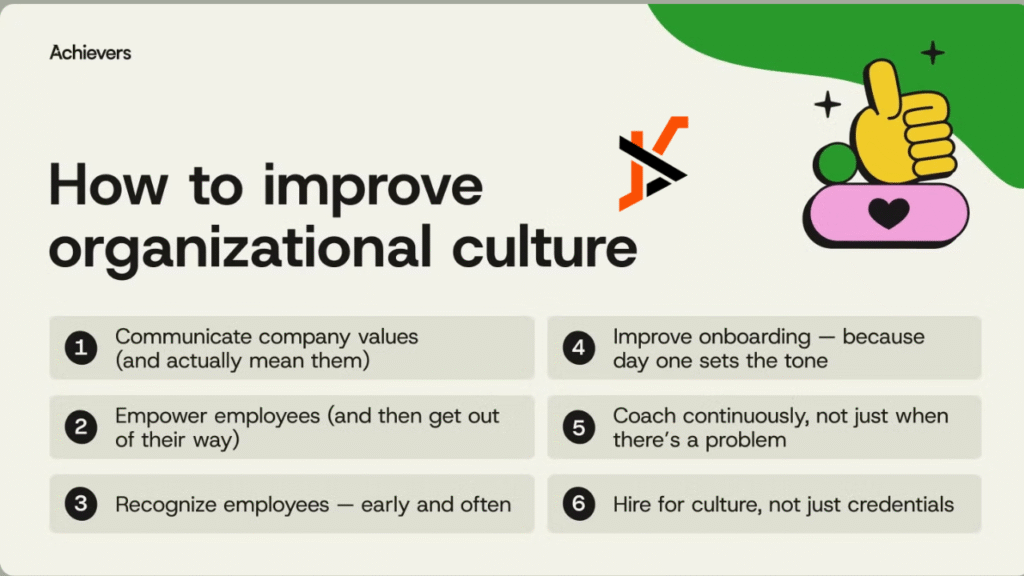In any office, the way people interact with each other can make all the difference to how productive and engaged they feel at work. A positive culture can lift spirits and boost productivity, maybe even improve overall job satisfaction.
Creating a thriving workplace culture doesn’t always need big changes. It could be the small, mindful actions that create an environment where everyone can succeed. Here are some things worth trying.
Prioritise open communication
This is fundamental in any healthy workplace. When team members feel they can speak up, share their ideas and voice concerns, you build a foundation of trust.
To improve communication, set up regular check-ins with your team. These could be informal 15-minute chats where everyone is encouraged to share what they’re working on and any challenges they’re facing. Keeping everyone in the loop can help to address issues before they escalate.
Encourage feedback in all directions – not just from managers to staff. Allow employees to voice opinions about their work and even company processes. Acting on this feedback makes people feel heard and valued, which strengthens their engagement.
Create comfortable shared spaces
Workspaces can sometimes feel a bit sterile or overly formal, which can hinder creativity and team interaction. One of the simplest ways to improve office culture is to invest in spaces that encourage collaboration and relaxation.
A comfortable break area, equipped with a few cosy chairs and a professional-standard coffee machine, can become a central hub for employees to unwind and have casual discussions. This is crucial for building camaraderie outside of structured meetings.
A space doesn’t have to be large or expensive. Just create a welcoming environment where people feel comfortable enough to exchange ideas or simply take a break. Time spent building relationships in these areas can improve teamwork and morale in the long run.
Recognise and reward contributions
Recognition doesn’t always have to come with a big reward or public accolades. Simple gestures of appreciation go a long way. Acknowledge someone’s effort in a meeting or send a quick thank-you email for a job well done. Public recognition makes people feel valued, while more private appreciation can nurture positive working relationships without drawing unnecessary attention.
Another effective way to recognise contributions is to set up a peer recognition programme. This gives team members a chance to recognise each other’s efforts in real-time, promoting a supportive culture and mutual respect.
Actively support work-life balance
Being proactive about your team’s work-life balance is something all employers won’t do – but this is an opportunity to do better. Encourage employees to take time off when they need it, and lead by example.
If your team sees you working excessive hours, they may feel pressured to do the same, even if it negatively impacts them. By promoting regular breaks and flexible working patterns, you show that you care about the individual, not just the worker.
Offer options for remote work or flexible hours where possible, giving people the freedom to organise their day in a way that suits their life. Employees who are allowed to balance different parts of their lives are more likely to stay engaged and committed to the company.

